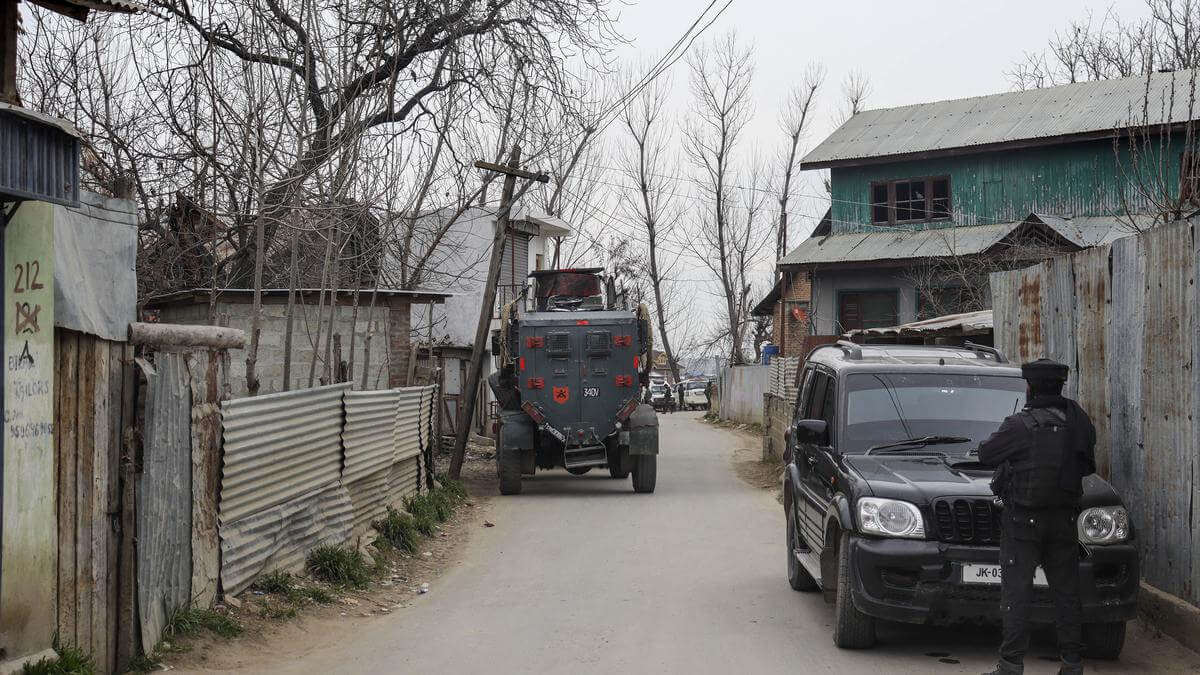In its Country Reports on Terrorism 2021: India document released on Monday, the US Department of State said that India had “made significant efforts to detect, disrupt, and degrade operations of terrorist organisations.”
The report notes that terrorist groups like Lashkar-e-Tayyiba (LeT), Jaish-e-Mohammed, Hizbul Mujahideen, ISIS, Al Qaeda, Jamaat-ul-Mujahideen, and Jamaat-ul-Mujahideen Bangladesh (JuMB) are active in India. It further revealed that “terrorist tactics showed a shift toward attacks on civilians and greater reliance” on improvised explosive devices (IEDs).
A US report has told how India has made necessary efforts to eliminate terrorists. According to the US Bureau of Counterterrorism's Country Reports on Terrorism 2021: India, India has made significant efforts to trace the operations of terrorist organizations.#CountryReports21 pic.twitter.com/dgLVBBkmVM
— SWAMI NIJANAND (@9415Swami) February 28, 2023
Terrorist Attacks in 2021
The document reported 153 terrorist attacks in Jammu and Kashmir (J&K), resulting in 274 deaths, including 45 security personnel. It also mentioned a 1 November attack in Manipur, wherein the People’s Liberation Army of Manipur and Naga People’s Front killed seven people, including an Indian Army officer, his wife, and a minor son.
Additionally, the report mentions some “significant law enforcement actions,” such as a National Intelligence Agency (NIA) Special Court sentencing three LeT and Harkat-ul-Jihad-e-Islami terrorists to 10 years of imprisonment for weapons smuggling and eight JuMB terrorists being convicted for the 2012 Bodh Gaya attacks with explosives.
The NIA investigated 37 cases related to ISIS, arrested 168 people till September, and probed another nine cases of possible terror funding.
Budgetary Constraints
The report noted that New Delhi “expanded the number of state-level Multi-Agency Centres to strengthen sharing of intelligence among state and federal agencies,” and that it uses watchlists, implements biographic and biometric screening at ports of entry, and prioritises information sharing.
It also highlighted that although Indian law enforcement “face budgetary, staffing, and equipment constraints,” the “capacity to patrol and secure” maritime and land borders has been improving, but remains inadequate, given India’s extensive coastline.
US-India Cooperation
The report further affirmed that India “responds promptly” to US requests for information related to terrorism investigations, making “efforts to mitigate threats.” Both countries also collaborate on “implementing dual screen X-raying for cargo screening” at airports.
3-Collaborative efforts to disrupt terrorist travel continue, and alerts are issued to U.S. authorities for possible threats in the United States and against U.S. interests.
— Abhinandan Mishra (@mishra_abhi) February 28, 2023
Washington and New Delhi are “committed to collaborating on improving border security and information-sharing capabilities.”
No Central Policy to Counter Extremism
According to the report, India does not have a central policy related to countering violent extremism, and state governments have the power to formulate deradicalisation strategies. However, only five Indian states have such a policy.
The Ministry of Home Affairs, which has been trying to prepare “an action plan on strategic messaging to counter radicalisation,” has yet to release the policy.
Nonetheless, the US report stressed that the Indian Army runs schools, training courses, recruitment drives, medical camps, and emergency services to prevent “radicalisation” in J&K.

